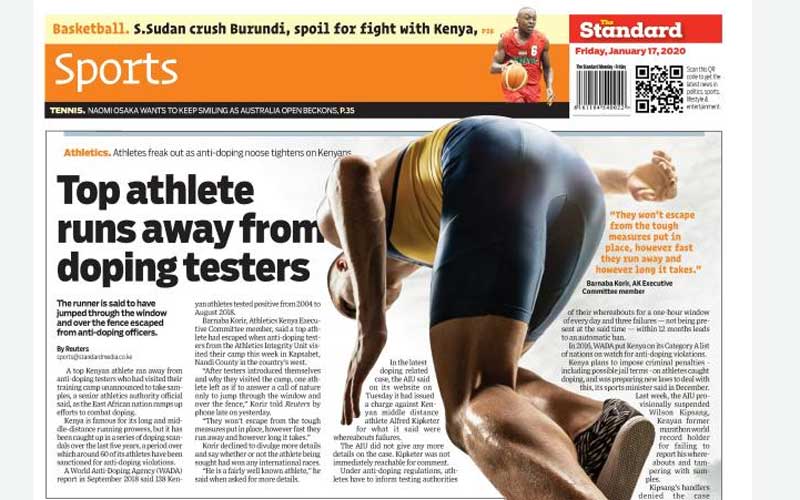×
The Standard e-Paper
Home To Bold Columnists

We are barely 20 days into 2020, and two top Kenyan athletes have been provisionally suspended for anti-doping violations. Former world marathon record holder Wilson Kipsang and 2014 world under-20 800m champion Alfred Kipketer have been suspended for missing dope tests. This is not good news for the nation – especially coming six months to the 2020 Tokyo Olympic Games.